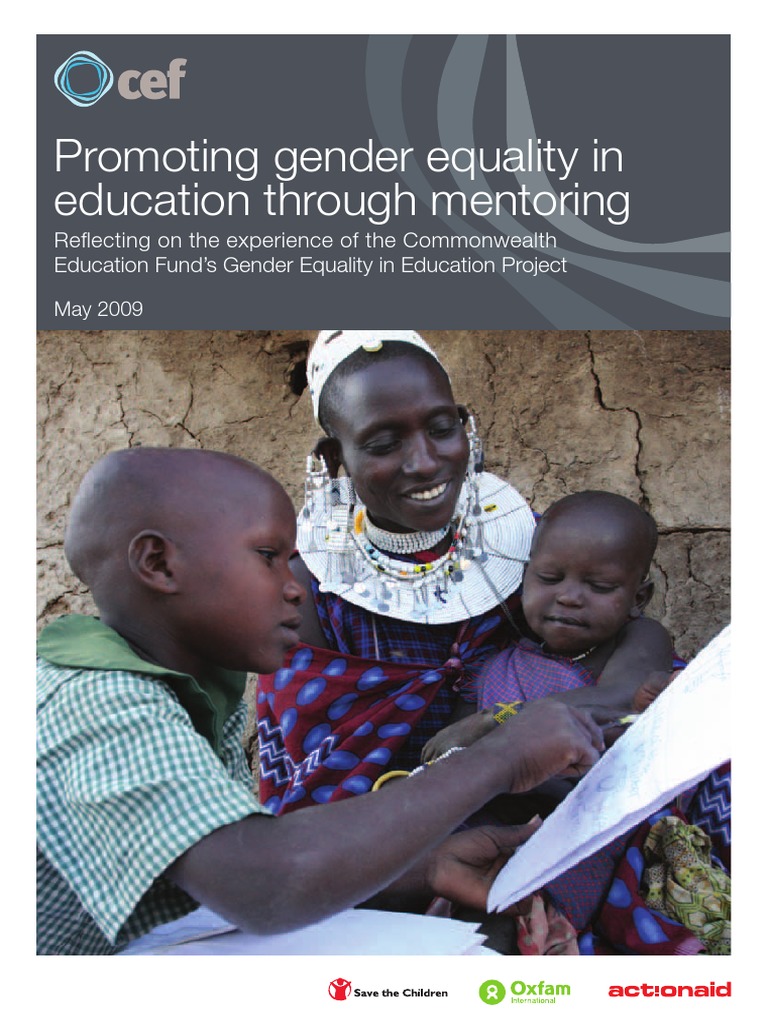In the ever-evolving discourse surrounding gender equality, education emerges as the paramount instrument that can catalyze substantive societal changes. Within the Bahá’í teachings, education is not merely a privilege but a fundamental right bestowed upon every individual, irrespective of gender. This doctrine emphasizes that the elevation of women and girls through educational programs not only benefits them but, concomitantly, enriches societies as a whole. The core tenet that “the education of women is of paramount importance” encapsulates the ethos of Bahá’í teachings regarding gender equality.
The necessity of education as the initial stride towards gender parity can be observed through several interconnected dimensions. Initially, the cognizance of gender stereotypes can often be attributed to the absence of educational opportunities. Education serves as a vehicle for enlightenment, dispelling ignorance that perpetuates discriminatory practices. When individuals, regardless of their gender, receive an education, they empower themselves and those around them. Thus, educational institutions are challenged to become incubators of progressive gender norms.
Moreover, Bahá’í teachings advocate for the integration of both males and females in the educational arena. The principle of unity in diversity is fundamental to this discourse, positing that both genders possess unique attributes that can contribute to the advancement of civilization. Coeducational systems promote collaboration and mutual respect between boys and girls, fostering an environment where gender stereotypes are diminished. Educational curricula designed to instill values of equality and respect can significantly impact future generations.
Central to Bahá’í philosophy is the concept of the interconnectedness of all humanity. This worldview posits that the disenfranchisement of one gender adversely affects the collective societal fabric. Thus, education serves as a conduit through which individuals can attain self-actualization, leading to constructive participation in community life. When women and girls receive equitable access to educational programs, they become critical agents of change. Their burgeoning skills and enhanced agency not only uplift their immediate families but also instigate wider transformations within their societies.
It is imperative to consider the various educational modalities championed by Bahá’í principles. These can range from formal education systems to community-based initiatives. Formal education encompasses traditional pathways, such as schools and universities, which equip learners with foundational knowledge and vocational skills. Conversely, informal education fosters lifelong learning through community programs and mentoring. Both modalities are indispensable in cultivating an inclusive educational ecosystem, reinforcing the notion that education is a universal and lifelong undertaking.
Additionally, the role of mentorship emerges as a critical component in the educational landscape. Mentorship, as advocated within Bahá’í teachings, engenders relationships that provide guidance, support, and encouragement. Such frameworks can help dismantle the barriers that hinder women’s access to education and leadership positions. Noteworthy is the call to action for educated individuals to impart their knowledge and skills to others. This ripple effect can create a robust network of empowerment, shaping future leaders who are well-equipped to champion gender equality.
In examining the broader implications of gender parity through education, it is essential to acknowledge the interconnection between educational attainment and economic development. A society that invests in the education of its women reaps bounteous rewards in terms of economic productivity and innovation. Studies consistently show that educated women contribute significantly to the workforce, catalyzing economic growth and stability. They are more likely to advocate for their families’ health, nutrition, and overall well-being, thereby fostering sustainable development and community resilience.
Furthermore, a crucial aspect of the Bahá’í teachings is the emphasis on moral education, which transcends mere academic pursuits. The cultivation of virtues such as integrity, compassion, and justice forms the bedrock upon which an equitable society can flourish. Moral education intrinsically aligns with the principles of gender equality, as it promotes respect for all individuals and nurtures a sense of shared responsibility within communities. Through moral teachings, students can learn to challenge societal norms that perpetuate discrimination and instead foster inclusivity.
Nonetheless, the path toward achieving gender equality through education is fraught with challenges that must be acknowledged and addressed. Historical norms, cultural stigmas, and systemic barriers can impede progress. The Bahá’í community advocates for innovative solutions to these pervasive issues, underscoring the necessity of collaborative efforts among governmental, non-governmental organizations, and community groups. Collective action is crucial to dismantle educational disparities and create environments conducive to gender equity.
In conclusion, the Bahá’í teachings affirm that education is the fundamental antecedent to gender equality. By providing equitable access to education and nurturing environments conducive to learning, societies can engender a culture that celebrates both male and female contributions. The amalgamation of formal and informal educational approaches, enhanced by mentorship and moral development, creates an ecosystem ripe for transformative change. Ultimately, fostering gender equality is not solely a matter of fairness; it is a prerequisite for human progress and the advancement of civilization as a whole.
